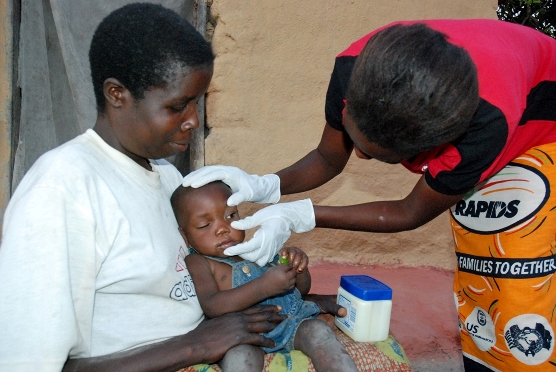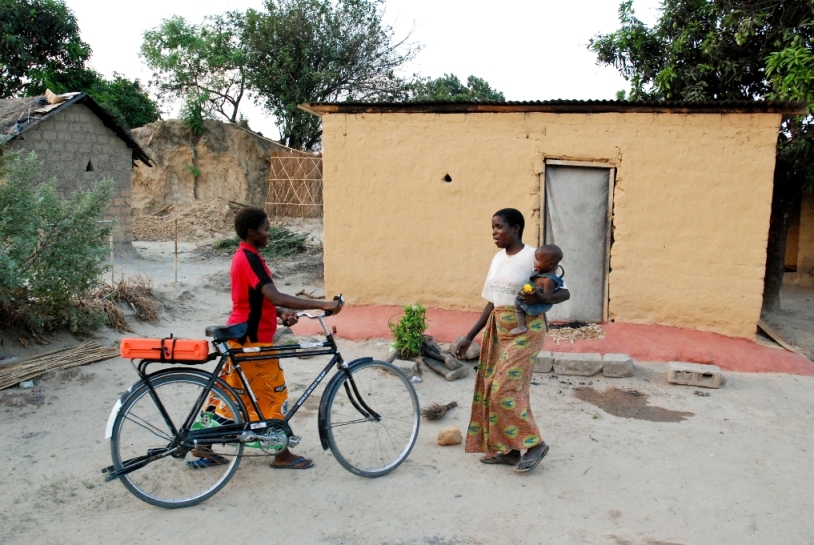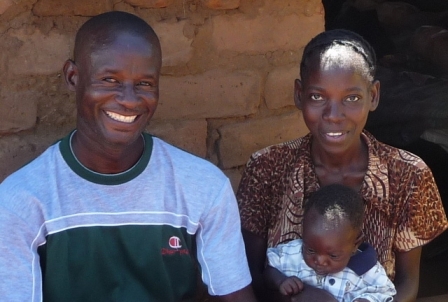
By Miyon Kautz, World Vision Zambia
I have been paying taxes my entire adult life. But I never saw those tax dollars put to such good use until three years ago, when I moved to the large, land-locked African country of Zambia. The 12 million people here are beautiful, generous, caring and, tragically, 1.1 million of them are living with HIV. An estimated 600,000 children have lost at least one parent to AIDS.
Zambian families and communities have always cared for those in need -- the sick, the dying, the orphans. It's ingrained in their culture. But over the past few decades, AIDS has challenged the capacity of Zambians to provide this care. There have simply been too few healthy adults to care for so many in need.
That's where my tax dollars stepped in. Under PEPFAR (the President's Emergency Plan for AIDS Relief), established by President Bush in 2003, the U.S. Agency for International Development funds a World Vision-led consortium to help people infected and affected by HIV and AIDS. I have the privilege of working in that program.
The innate generous spirit of the Zambians has been a catalyst for the success of the program. Some 20,000 volunteer caregivers have been recruited, trained and equipped to care for 300,000 sick and vulnerable children and adults. These caregivers give sacrificially of their time and their meager assets and food to care for the sick... and care for children who are left alone because their parents have died.
These caregivers are not alone. The project is supported not just by the U.S. government, but by the Zambian government as well as private donors in the United States. Corporations and foundations have provided funding, along with mosquito nets so that caregivers can help protect their clients from malaria. Churches and businesses in the U.S. have "Caregiver Kit" builds, filling orange boxes with simple yet vital supplies like cotton balls and soap so the caregivers can do their job. We've even received donations of bicycles, to help the caregivers travel long distances to see their clients.
The program is working. Before the program started, the HIV prevalence rate was 15.6 percent; recently, that has dropped to 14.3 percent.
Did our tax dollars make any difference here? Yes. They helped leverage involvement by others and changed the lives of those who are infected. I have met men and women who were so sick with HIV that they could only lay quietly in their huts... yet, it is these same people who now are feeling better and have the strength to become caregivers themselves. And, it's not just about getting better. These once-sick men and women can now lead productive lives, helping grow the local economy, keeping their children in school, and most of all, telling others about the scourge of HIV... and to how to avoid it.
I wanted to see what it was like to be a caregiver -- so I cycled with Rodney and Mary to visit their clients in a rural area part of Southern Zambia. I thought I was in pretty good shape, but Rodney took off and kept up a strong pace. I jokingly said "Wow, where did you get all that energy?" And he proceeded to tell me how he once was nearly dead. But through his caregiver, he is alive, thriving, able to take care of his children -- and wants to give back to others because of what his caregiver did for him. He was one of many people I've met whose life has been transformed because of this program. Dead to very much alive. Amazing.
No doubt, the generous, caring spirit is here and will live on. But with the U.S. government funding for this program, the impact has been deeper and wider, affecting not only caregivers, but youth, community groups, health care workers. We couldn't have trained and mobilized as many people as quickly -- and this battle against HIV and AIDS has been so urgent that we have needed to act quickly.
Communities are encouraged by the change they see in the "once dead" -- and how those who were so ill are now, once again, productive and contributing members of the community. That short-term impact has been remarkable, but the beauty is the long-term impact that will be felt for generations. I am certain that those individuals I have met who were so sick, people left them for dead -- yet today are out caring for others have changed the face of Zambia forever.
Mrs. Kautz is from Tacoma, Washington. World Vision staff like Miyon are on the front lines of the fight against poverty, and see first-hand the impact of U.S. foreign aid.


